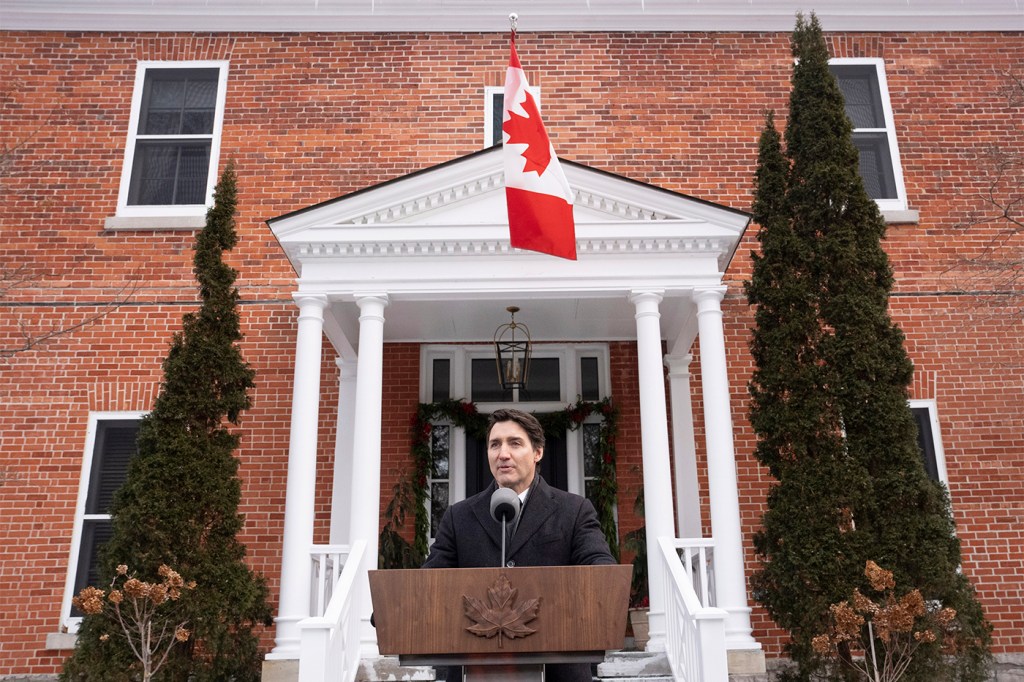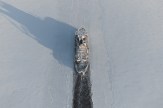With Justin Trudeau on his way out, is Canada in the middle of a rightward shift?
Does Justin Trudeau’s resignation reflect normal wear-and-tear of government, or something larger? Pablo Calderon Martinez, an associate professor of politics and international relations, offers some context.

Canadian Prime Minister Justin Trudeau says he is planning to step down as leader of the Liberal Party and as head of government in the coming days, marking the end of nearly a decade of liberal rule.
Is the pendulum about to swing in the opposite direction? The opposition Conservative Party leader Pierre Poilievre appears well-positioned to contest October’s election, coming off a highly watched interview with Jordan Peterson. Opinion polling shows the Conservative Party with a sizable lead over the governing coalition.
I will always fight for this country, and do what I believe is in the best interest of Canadians. pic.twitter.com/AE2nSsx5Nu
— Justin Trudeau (@JustinTrudeau) January 7, 2025
Pablo Calderon Martinez, a Northeastern University associate professor of politics and international relations, says that Trudeau’s exit from leadership has been a long time coming, and that the election of Donald Trump as president in the U.S. appeared to give a final push. (In the days following the election, Trudeau had a bit of a public back-and-forth with Trump, who repeatedly suggested that the U.S. should annex Canada as the 51st state.)
But it remains to be seen, Martinez says, whether the Liberal Party can maintain power. “A lot can happen in politics,” he says.
Though the last few years of Trudeau’s tenure have been marred by scandal, Martinez says his resignation is more of an illustration of a regime overstaying its welcome — reaching the soft limits of political power and influence. It’s an outcome that “we’ve come to expect,” he says, at a moment of global political polarization.
His party’s infighting came to a head in December when Trudeau’s finance minister, Chrystia Freeland, resigned, all the while Trump was tweeting about the spectacle in what would precipitate an exchange between the two leaders.
“In Trudeau’s case, I think it was the normal wear and tear of government,” Martinez says. “Any government after nine years — people just get tired of it. They want something new, something different. Change is easy to sell, and it’s very hard to sell change from within the same party.”
At the same time, from Europe to South America to the U.S., there has been a documented slide to the right, marked by an embrace of protectionist policies and “strongman” politics. Martinez says that the situation in Canada could be part of that broader trend.
“We’re seeing that in the U.S. and the U.K.; we’re seeing it in Italy, of course; France, which is teetering on the edge; Brazil; Argentina; and India,” Martinez says.
Asked about what he thinks accounts for the rise in right-wing populism worldwide, Martinez said: “I think it’s linked to migration and just how easy it is to blame migrants and migration for problems. We’ve been doing that for hundreds of years. It’s textbook populism: simple answers to complex problems.”
He continues: “Countries that have seen higher levels of recent migration tend to be the ones — though not exclusively — that are pivoting to the right and falling prey to populist rhetoric. We’re also seeing it in countries where, in addition to the effects of the pandemic, financialization and globalization and the changes in economic production patterns that they bring have had deep effects in terms of equality.”
Trudeau’s statement Monday was brief; he did not take questions from reporters.
“I intend to resign as party leader, as prime minister, after the party selects its next leader through a robust, nationwide competitive process,” Trudeau told the press. “This country deserves a real choice in the next election, and it has become clear to me that if I’m having to fight internal battles, I cannot be the best option in that election.”
Featured Posts
As the son of a former Canadian prime minister, Trudeau’s political career had an auspicious start. A former high school teacher, he was elected to Parliament in 2008. In 2013, he would rise to the top of the Liberal Party, laying out an agenda that would include an embrace of diversity, environmentalism (in the form of a national carbon tax program), and refugee and Indigenous rights.
As time went on, enthusiasm for Trudeau waned, particularly in the wake of the COVID-19 pandemic. A cost-of-living crisis ballooned in recent years, and a loose border policy resulted in a rapid influx of immigrants — more than the nation was prepared to take in, Trudeau said recently.
“We are acting today, because in the tumultuous times as we emerged from the pandemic, between addressing labor needs and maintaining population growth, we didn’t get the balance quite right,” Trudeau said in October.
That admission didn’t help Trudeau’s already tarnished image, Martinez says. “That’s politics 101: never admit that you were wrong.”
“I still think Canada is a fairly diverse country and, unlike many other places, it’s fairly evident that it needs migration,” Martinez says. “It’s been a historical problem in Canada for a long time. Maybe the pace of migration is something that needs to be discussed, but I think Trudeau’s policy to some degree was an economic policy.












